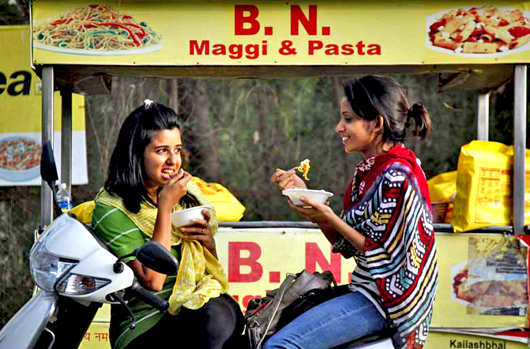New Delhi, Jun 5: Nestle India on Thursday night decided to take Maggi off the shelves after a controversy erupted over its contents, prompting several states to ban the 'two-minute' noodles.

Asserting that the product was "completely safe", the company in a statement late Thursday night said, "Unfortunately, recent developments and unfounded concerns about the product have led to an environment of confusion for the consumer, to such an extent that we have decided to withdraw the product off the shelves..."
"We promise that the trusted Maggi Noodles will be back in the market as soon as the current situation is clarified," it added.
After Delhi, four more states — Gujarat, Tamil Nadu, Jammu & Kashmir and Uttarakhand — on Thursday banned the sale of Maggi noodles after concerns were raised over presence of monosodium glutamate (MSG) and lead beyond permissible levels in the product.
The Tamil Nadu and Uttarakhand governments banned the sale of Nestle's instant noodles for three months while in Gujarat the ban will be effective for one month after some samples of the food had failed lab tests, officials said in Chennai, Dehradun and Gandhinagar.
In Jammu & Kashmir, the state government banned the sale for one month till the receipt of reports over the fitness of the fast food for human consumption.
The four states also ordered the noodle manufacturers Nestle India to immediately withdraw the stocks.
Bihar and Uttar Pradesh are awaiting results of tests of samples of the noodles taken from the respective states before taking any action. Delhi had on Wednesday banned sale of the food item for 15 days.
Apart from Maggi, the Gujarat government also tested one sample each of instant noodles of Sunfeast and SK Foods and has banned the latter for a month as high lead content of 4 PPM was found in it.





Comments
Add new comment